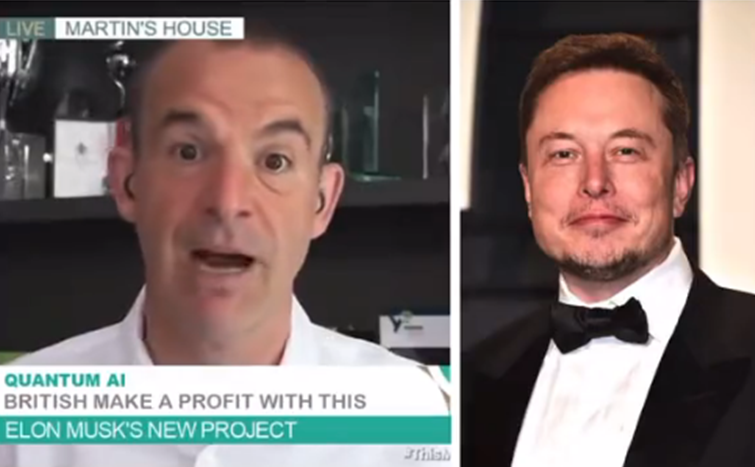
[ad_1]
Martin Lewis accuses Meta* of not having enough control over one of its platforms
A TV presenter from the UK complained about the spread of a deepfake scam with his participation on the social network Facebook*.
Renowned British TV presenter Martin Lewis, widely known in the UK for his advice on financial literacy and saving money, accused company Meta * in insufficient control of fraudulent online advertising, once on the platform Facebook * a video with a fake image of him appeared, promoting an investment scam.
Frame from fake video
The video was created using deep fake technology (deepfake), which allows you to replace the faces and voices of people in videos. In the video, Lewis allegedly recommended the “Quantum AI” investment scheme allegedly backed by Elon Musk.
Lewis quickly denied his involvement in the video on his social media. “This is frightening, this is the first scam I’ve been involved in that has used deep forgery technology.” wrote he is in Twitter **. “The government and regulators should tighten their grip on the big tech companies that publish such dangerous fakes. People can lose money and it will ruin their lives, ”added the TV presenter.
The Internet Security Bill, which has already been supplemented with provisions on advertising fraudulent schemes, is currently being discussed in the Upper House of the UK Parliament.
Lewis never engaged in advertising or investment promotion and urged his followers to ignore the video, which was circulated primarily through Facebook and Instagram *.
“The scammers have video and audio technologies that completely copy my face and voice. These people are trying to ruin and destroy my reputation in order to extort money from naive people, ”Lewis said.
A spokesperson for Meta stated that the social network was quick to remove the offensive ads: “We do not allow these kinds of ads on our platforms and the original video has been proactively removed by our teams. We have also removed multiple instances of ads using the same image.”
Despite Meta’s quick response, the incident highlights how advanced deepfake technology has become in recent years. “People don’t realize how advanced AI-based deep forgery technology is and how democratized it is. AI is increasingly being used by attackers to create convincing fakes to bypass voice recognition,” explained Nick France, CTO of SSL in company Sectigo.
“As passwords are used less and less, biometrics is becoming a trusted way to verify identity. It makes sense. But as forgeries become more common, some biometric authentication methods may become useless,” Frans added.
Lewis has previously sued Meta for defamation over fake ads on the platform bearing his name, but agreed to an out-of-court settlement after the tech giant promised to reverse its operation and donate £3m to an independent organization Citizens Advice.
* The Meta company and its products (Instagram and Facebook) are recognized as extremist, their activities are prohibited on the territory of the Russian Federation.
** The social network is prohibited on the territory of the Russian Federation.
[ad_2]
Source link
www.securitylab.ru
